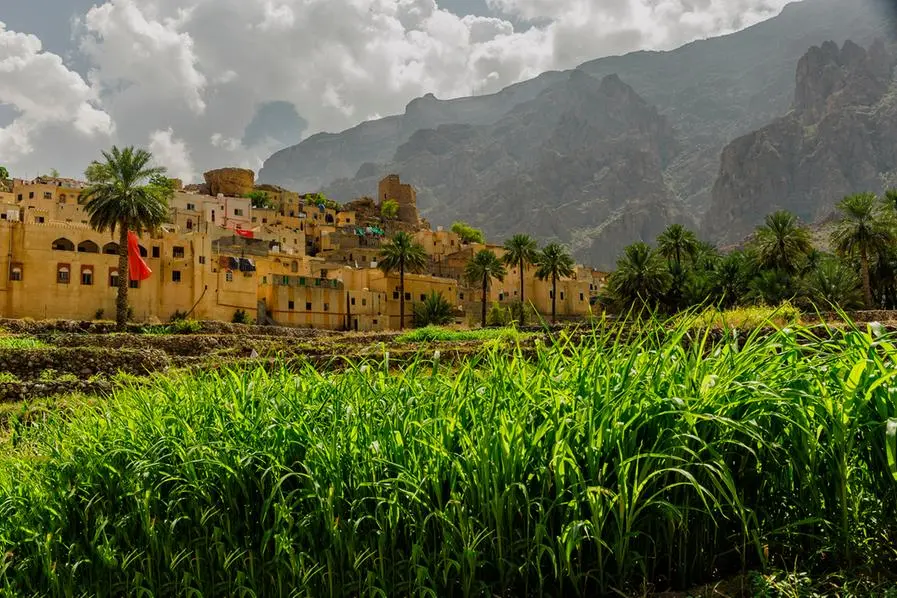PHOTO
Muscat – Ministry of Agriculture, Fisheries and Water Resources (MAFWR) is undertaking several projects aimed at strengthening Oman’s agricultural sector and ensuring food security.
The projects span research in crop productivity, disease management and water resource efficiency, with strong emphasis on using innovative ways to address the region’s unique agricultural challenges.
The ministry has launched research programmes targeting the use of treated and saline water in agriculture, genetic improvement in livestock, and disease monitoring in animals. “These efforts are essential to our strategy of improving agricultural and animal productivity,” said Dr Hamdan bin Salem al Wahaibi, Director-General of Agriculture and Animal Research at MAFWR.
Enhancing genetic strains of cows and goats, he added, will contribute to better livestock quality and productivity.
One of the projects focuses on tissue culture technology to boost date palm and crop productivity. Through this method, the ministry is also increasing production of specific fruit crops and ornamental plants, and improving the availability of high-quality seeds and seedlings across Oman. Another initiative will investigate antibiotic and hormone residue in broiler meat sold in local markets to ensure safe food practices.
MAFWR is also conducting studies on bacterial resistance in broiler farms, sustainable garlic cultivation and integrated fruit fly management. These research efforts, funded by Ministry of Higher Education, Research and Innovation, promote the advancement of agriculture by enhancing crop quality and meeting market demand.
Developments are underway to increase production of grain crops such as wheat, barley, corn, cowpeas and clover. The ministry recently conducted a study on the timing of wheat cultivation to maximise production. Investigations are also being conducted into ‘Witch’s broom’ disease affecting lemon trees, and a survey of local banana strains to support better crop management. A semen bank for horses has been established in an effort to support animal husbandry.
Wahaibi stressed the fact that agricultural research is critical to Oman’s food security. “Adopting modern technologies will help us meet the sector’s challenges effectively.” Research centres under MAFWR focus on everything from soil and water management to biological control of pests and crop diseases. Its key facilities include the Soil and Water Research Centre, Palm and Plant Production Research Centre and the Animal Production Research Centre, which are dedicated to vital aspects of agricultural science and innovation.
One noteworthy initiative is the sultanate’s National Strategy for Date Palms which aims to boost date production while controlling pests with safer management methods. In addition, gene banks have been set up to preserve Oman’s agricultural biodiversity, housing an extensive collection of local fruit varieties, including 252 varieties of mango, 250 date palms and 34 citrus fruits. These banks also have an impressive collection of genes of bananas, grapes, figs and guavas, among other fruits, ensuring the preservation of local genetic resources and bolstering the resilience of Oman’s agricultural sector.
© Apex Press and Publishing Provided by SyndiGate Media Inc. (Syndigate.info).





















